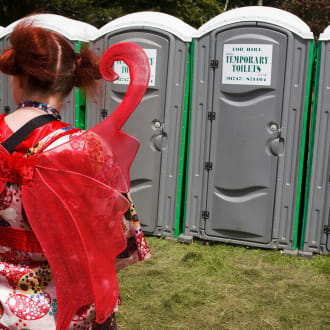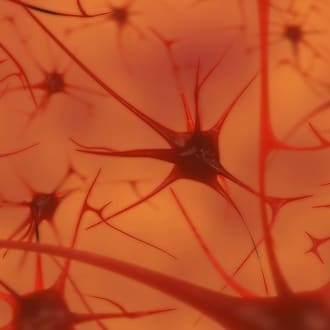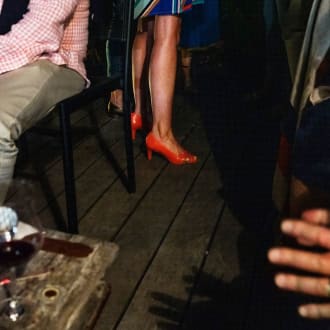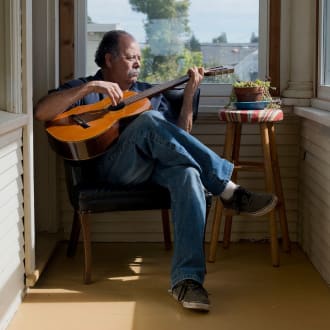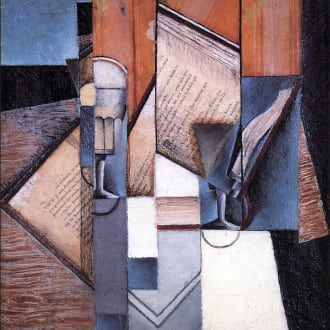The Best of Aeon+Psyche
20+ most popular Aeon+Psyche articles, as voted by our community.
Trending
These are currently making the rounds on Refind.
Pioneering sociologist Erving Goffman saw magic in the mundane
Pioneering sociologist Erving Goffman realised that every action is deeply revealing of the social norms by which we live
The achievement society is burning us out, we need more play
This is about more than a self-help switch – it will take structural changes to reject capitalism’s productivity obsession
The psychology of impatience could make waiting more tolerable
New studies on the experience of impatience suggest there’s more to it than simply how long you’ve been left hanging
How to use ‘possibility thinking’
Have you hit an impasse in your personal or professional life? Answer these questions to open your mind to what’s possible
«You should by now have an extensive map of possibilities. The aim of this stage is to look at each in turn and ask ‘Why not?’»
I rebuilt my self-esteem by changing the story of who I am
I once clung to a dubious family legend to help me cope with a difficult childhood. I’ve since found a better story to tell
Aeon+Psyche on Anger
There’s no emotion we ought to think harder about than anger
Anger is the emotion that has come to saturate our politics and culture. Philosophy can help us out of this dark vortex
Anger Is Temporary Madness: The Stoics Knew How to Curb It
Anger is a complicated emotion, but one you can learn to control. Here’s how.
Aeon+Psyche on Anxiety
Many people not only survive mental illness
For people with depression, anxiety and other conditions, reaching high wellbeing – not just recovery – is a real possibility
«enhanced focus on wellbeing will spark a broader conversation that encourages providers to better align patient care with patient goals»
How to tell whether you’re being careful or giving in to anxiety
It’s not always easy to tell what’s a sensible safeguard, and what’s an anxiety-fuelling habit. A few questions can help
«bring a stick to hit shrubs along the path. Does the behaviour allow for engagement in valued activities?»
Aeon+Psyche on Brain
How to maintain a healthy brain
Adopt these lifestyle changes and you will not only sharpen your mind today but also reduce your risk of dementia later on
«Train your body Just as mental health and brain health are deeply entwined, so too are your overall physical health and your brain health»
Your brain does not process information and it is not a computer
Your brain does not process information, retrieve knowledge or store memories. In short: your brain is not a computer
Aeon+Psyche on Consciousness
Does consciousness come from the brain’s electromagnetic field?
Instead of a code encrypted in the wiring of our neurons, could consciousness reside in the brain’s electromagnetic field?
«Our non-conscious mind appears to be a parallel processor, whereas our conscious mind is a serial processor that can operate only one task at a time.»
Consciousness is not a thing, but a process of inference
The special trick of consciousness is being able to project action and time into a range of possible futures
Aeon+Psyche on Economics
Economics is once again becoming a worldly science
After generations of ‘blackboard economics’, Berkeley and MIT are leading a return to economics that studies the real world
«a preponderance of research that has shown no meaningful disemployment effects of raising minimum wages.»
Why everyone needs to learn (some) economics
Economics is the language of power and affects us all. What can we do to improve its impoverished menu of ideas?
Aeon+Psyche on Philosophy
What public philosophy is, and why we need it more than ever
Public philosophy aims to improve critical thinking so that we gain a better understanding of the world and of ourselves
«blic philosophy initiatives: Michael Sandel’s ‘Justice’ course, the BBC’s History of Ideas animations, or the many popular philosophy podcasts, including History of Philosophy Without Any Gaps from Peter A»
How Alan Watts re-imagined religion, desire and life itself
Alan Watts, for all his faults, was a wildly imaginative and provocative thinker who reimagined religion in a secular age
Aeon+Psyche on Psychoanalysis
The truth about tarot
Whether divining ancient wisdoms or elevating the art of cold reading, tarot is a form of therapy, much like psychoanalysis
Why we love tyrants
Psychoanalysis explains how authoritarians energise the hatred, self-pity and delusion while promising heaven on Earth
Aeon+Psyche on Psychology
Why the pull of addictive cravings is so hard to resist
The neuroscientific picture of addiction overlooks the psychological and social factors that make cravings so hard to resist
How to overcome social anxiety
When even everyday social situations make you feel self-conscious and afraid, it’s time to try these well-tested techniques
«Social anxiety tricks you into believing that certain situations cause anxiety, but in reality, your thoughts about the situations drive your anxiety.»
Aeon+Psyche on Relationships
Dogs are symbolic containers of human hopes, desires and vices
In all its baroque and sometimes cruelly overbred forms, the dog is a paramount symbol of both human hopes and foibles
«As a rising middle class started to focus on their own family trees, creating an ‘elite’ from new money, so dogs started to be classified too.»
How should we understand the weird experience of coincidence?
I am an unequivocal rationalist and yet I still want to see something strange and wonderful in life’s weird coincidences
Aeon+Psyche on Self Help
How to be kinder to yourself
Self-compassion techniques aren’t self-indulgent – they’ll tame your inner critic while helping you change for the better
«So I dedicated 10 minutes to sit down and reflect on the same questions I ask my clients to help them clarify their values. These were my answers:»
Self-compassion is not self-indulgence: here’s how to try it
Contrary to popular belief, it’s not self-indulgent to practise self-compassion. In fact, it helps you to care for others
Popular
These are some all-time favorites with Refind users.
How imaginary numbers describe the fundamental shape of nature
These odd values were long dismissed as bookkeeping. Now physicists are proving that they describe the hidden shape of nature
How to know what you really want
From career choices to new purchases, use René Girard’s mimetic theory to resist the herd and forge your own path in life
«These are people whose desires are in some sense intertwined with your own – they can affect your desires, and you can in turn affect theirs»
On the moral virtues of mischief and mischievous people
Mischievousness requires humour, wit and a playful humaneness: qualities that make for a particular kind of virtue
How to think clearly
By learning to question and clarify your thoughts, you’ll improve your self-knowledge and become a better communicator
«So far as possible, you should try to extract the maximum truthful and reasonable content from what others say, especially if they disagree with you»
How to gain more from your reading
There’s more to words than meets the eye. Deepen your appreciation of literature through the art of slow, attentive reading
«From reading deeply, you gain experience as well as knowledge: you gain from reading literary works in all their unique particularity.»
What is Refind?
Every day Refind picks the most relevant links from around the web for you. is one of more than 10k sources we monitor.
How does Refind curate?
It’s a mix of human and algorithmic curation, following a number of steps:
- We monitor 10k+ sources and 1k+ thought leaders on hundreds of topics—publications, blogs, news sites, newsletters, Substack, Medium, Twitter, etc.
- In addition, our users save links from around the web using our Save buttons and our extensions.
- Our algorithm processes 100k+ new links every day and uses external signals to find the most relevant ones, focusing on timeless pieces.
- Our community of active users gets the most relevant links every day, tailored to their interests. They provide feedback via implicit and explicit signals: open, read, listen, share, mark as read, read later, «More/less like this», etc.
- Our algorithm uses these internal signals to refine the selection.
- In addition, we have expert curators who manually curate niche topics.
The result: lists of the best and most useful articles on hundreds of topics.
How does Refind detect «timeless» pieces?
We focus on pieces with long shelf-lives—not news. We determine «timelessness» via a number of metrics, for example, the consumption pattern of links over time.
How many sources does Refind monitor?
We monitor 10k+ content sources on hundreds of topics—publications, blogs, news sites, newsletters, Substack, Medium, Twitter, etc.
Can I submit a link?
Indirectly, by using Refind and saving links from outside (e.g., via our extensions).
How can I report a problem?
When you’re logged-in, you can flag any link via the «More» (...) menu. You can also report problems via email to hello@refind.com
Who uses Refind?
450k+ smart people start their day with Refind. To learn something new. To get inspired. To move forward. Our apps have a 4.9/5 rating.
Is Refind free?
Yes, it’s free!
How can I sign up?
Head over to our homepage and sign up by email or with your Twitter or Google account.


